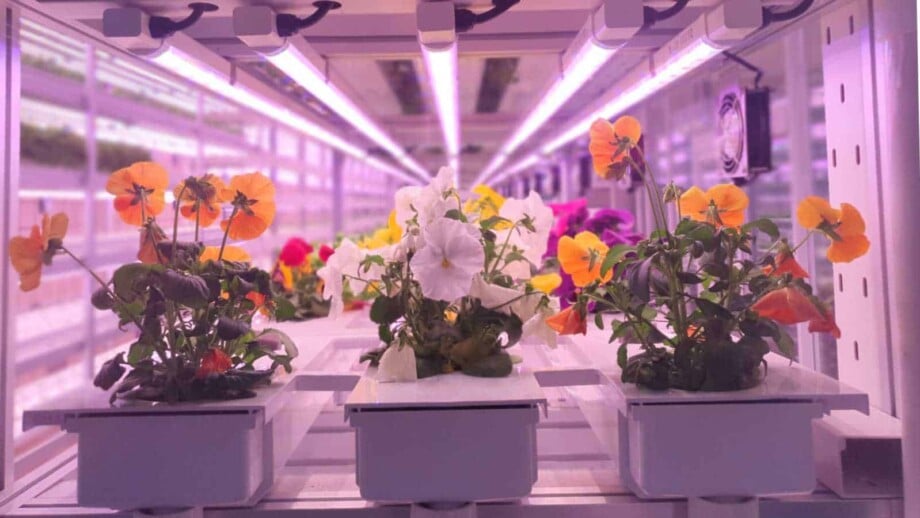Transform your home into a year-round floral haven with hydroponic flower gardening! This guide will explore the joy of cultivating vibrant blooms indoors, free from weather limitations and seasons. Join me in a curated list of ten enchanting flowers. Unleash the beauty of nature within your living space and let these blossoms thrive hydroponically!
Bulbs

Bulbs, like hyacinths and tulips, thrive in hydroponics, especially in a Deep Water Culture (DWC) system. The simplicity of a DWC setup, where the bulbs’ roots sit in a nutrient solution, ensures they receive consistent water without the risk of over-soaking. This method allows for enduring beauty and efficient nutrient absorption.
Carnations

Ideal for hydroponics, carnations flourish in a Nutrient Film Technique (NFT) system. These systems provide a consistent flow of nutrient-rich water, catering to the nutrient needs of carnations. Choose dwarf or ‘border’ varieties, and set up an NFT system for optimal results, creating a gorgeous splash of color in your indoor hydroponic garden.
Chrysanthemums

Chrysanthemums, hardy perennials, are well-suited for both passive and active Deep Water Culture systems. These systems provide consistent feeding, ensuring even distribution of nutrients. The flexibility of Deep Water Culture accommodates the nutrient and water requirements of chrysanthemums, resulting in vibrant flowers for months.
Dahlias

Dahlias, known for their diverse blossoms, thrive in hydroponics, particularly in an Ebb and Flow system. These heavy feeders benefit from the well-draining substrate found in Ebb and Flow setups, offering optimal conditions for nutrient absorption. Adjusting the nutrient solution as the seasons progress ensures these beauties get everything they need.
Lavender

Fragrant lavender is initially well-suited for small hydroponic systems and can be transferred to larger setups. Consider a Kratky hydroponics system for a start, providing a balanced environment for growth. As lavender can be a vigorous grower, a more extensive system with a deep bucket in a drip system allows it to spread and thrive, creating a fragrant addition to your indoor garden.
Marigold

Marigolds, with radiant blossoms and pest-repelling qualities, are perfect for a Nutrient Film Technique (NFT) system. Their smaller size makes them suitable for this setup, and the consistent nutrient flow encourages their unique fragrance and bright color. Marigolds become a visual delight and a functional companion plant in your hydroponic garden.
Orchids

Considered fussy by some, orchids shine in hydroponics, especially in a passive system using clay pebbles. This method mimics their rainforest habitat, providing the necessary support and nutrients. A clear vase with clay pebbles and mild fertilizer creates an ideal orchid environment to display exotic blooms for years.
Peace Lily

With low nutrient demands, peace lilies thrive in a passive hydroponic system like a wick pot. The slow draw of a wick maintains the delicate balance between moisture and avoiding over-saturation, keeping the leaves dark and glossy and the flowers radiant. This simplicity makes peace lilies an excellent choice for hydroponic enthusiasts.
Petunias

Velvety petunias, with their various colors, adapt well to small passive rigs and sprawling Nutrient Film Technique (NFT) systems. The flexibility of NFT systems accommodates the needs of petunias, displaying their abundant flowers with optimal nutrition. Select cultivars that match your hydroponic setup to ensure their growth and vibrancy.
Phlox

Thriving in the moist conditions of hydroponic systems, phlox is best suited for larger setups like Dutch bucket systems. Be cautious with seed choices; some varieties can grow over five feet. With more extensive medium beds, these systems offer the necessary root support for the size and lifespan of phlox plants.
Roses

Commercial rose growers increasingly turn to hydroponics, and a Deep Water Culture (DWC) system is ideal for home growers. With their large size, Roses benefit from the deep beds and consistent nutrient availability provided by DWC systems. Ensure good root support and ample space for these floristry favorites to thrive in your hydroponic garden.
Sunflowers

With their iconic large blooms, Sunflowers can thrive in a Nutrient Film Technique (NFT) system. These systems, designed for heavier nutrient requirements, support the vigorous growth of sunflowers. Ensure proper spacing and structural support, as sunflowers can grow tall. The NFT system provides the nutrients for robust stems and vibrant blooms in your hydroponic garden.
Conclusion
And there you have it! Whether cultivating the vibrant hues of marigolds or the exotic blooms of orchids, you can certainly elevate your indoor gardening experience with hydroponic flowers! From the simplicity of a Deep Water Culture for bulbs to the elegance of the Nutrient Film Technique for carnations and petunias, hydroponic systems provide an ideal environment for flourishing flora. Embrace the diversity of blooms and the joy of year-round cultivation in a hydroponic haven.
Other Guides from Planet Natural:
33 Plants That Grow In Water (Beginner-Friendly Guide)
Hydroponic Systems: How They Work and the Best Ones in 2023











